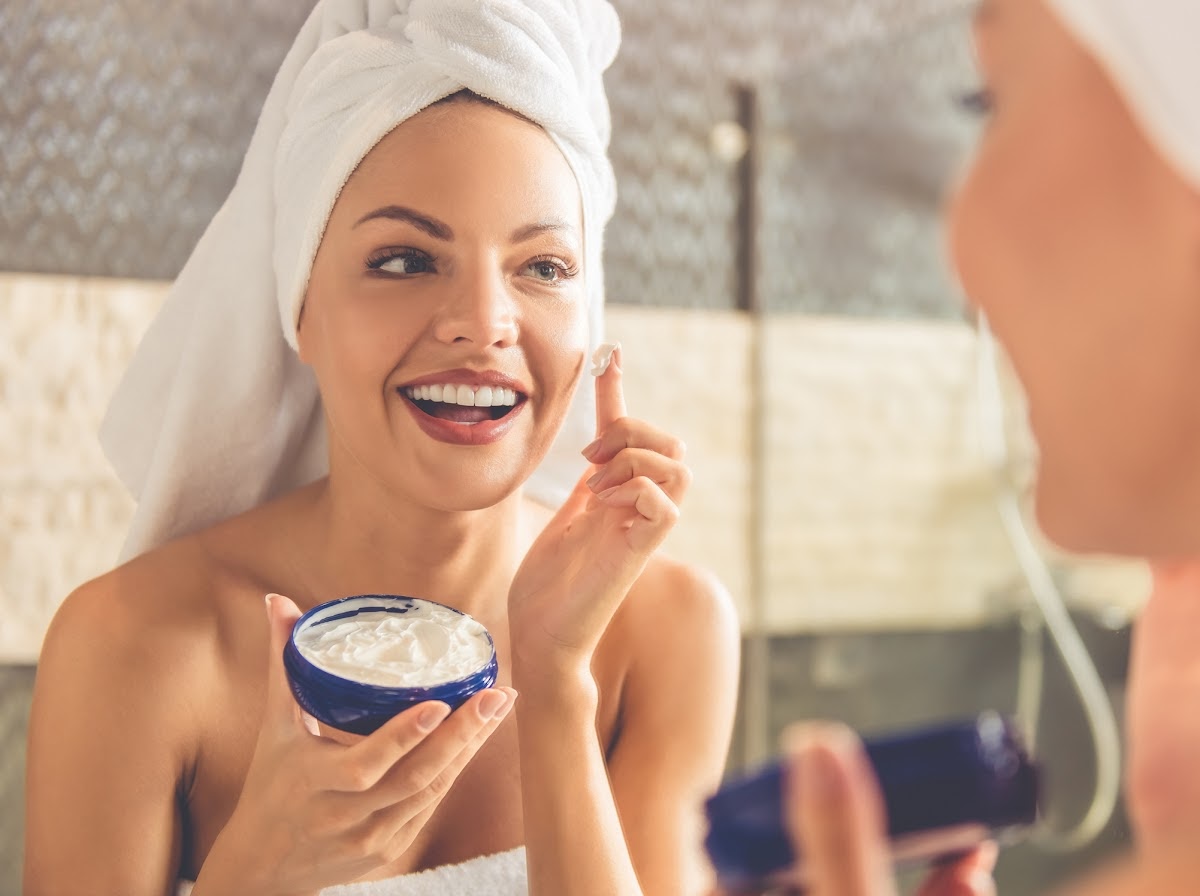Should you be skin cycling?

It is rare that skin care professionals can back viral skin treatments trending on social media, but there is one that Fort Worth Board-Certified Plastic Surgeon Dr. Emily J. Kirby can vouch for: skin cycling. Here, Dr. Kirby explains skin cycling and how this process can protect and enhance your skin’s health.
What is skin cycling?
Skin cycling refers to varying your skincare routine from day to day in a set pattern or cycle. The goal is to optimize product effectiveness while avoiding overuse of highly concentrated ingredients, which can damage the skin’s natural barrier.
Skin cycling routine
The steps of a classic skin cycling routine are as follows:
Night 1: Exfoliate. Cleanse your skin and apply a chemical exfoliant containing alpha hydroxy acids (AHAs), beta hydroxy acids (BHAs), or polyhydroxy acids (PHAs). These ingredients are more effective than physical exfoliants and are gentler on your skin barrier.
Night 2: Apply a retinoid. Cleanse the skin and apply a retinol to your face, neck, and décolletage. Retinols increase collagen production, help unclog your pores, and reduce signs of aging. If you are new to retinoids or have sensitive skin, first apply a moisturizer to reduce irritation until your skin becomes accustomed to the product.
Night 3: Recovery. Cleanse the skin and, while the skin is still damp, apply a serum that contains hydrating ingredients such as hyaluronic acid, niacinamide, or glycerin. Lock in the hydration by following with your favorite nighttime moisturizer.
Night 4: Recovery. Cleanse the skin and apply a moisturizer. If your skin feels dry or sensitive after cleansing, you can layer a hydrating serum under your moisturizer.
The goal of skin cycling is to optimize product effectiveness while avoiding overuse of highly concentrated ingredients.
What are the benefits of skin cycling?
Skin cycling may help prevent the overuse of active ingredients and a compromised skin barrier. Additional benefits of skin cycling include:
- Convenience. Many influencer skincare routines include daily use of numerous products, but this is costly, inconvenient, and overwhelming for you and your skin. Skin cycling offers a simplified regimen that even the busiest among us can follow.
- Enhances product effectiveness. The cycle is designed for maximum product effectiveness (e.g. exfoliating your skin on Night 1 primes the skin greater absorption of the retinol applied on Night 2).
- Protects the skin. Dedicating two nights to hydration and recovery allows your skin to recover from the active ingredients in chemical exfoliants and retinols. Additionally, a simplified skincare routine can help you weed out products that irritate your skin and identify options that are best suited to your skincare needs.
Is skin cycling safe?
Skin cycling is safe; however, the regimen should be personalized for your unique skin type. For example, for patients who find they cannot tolerate chemical exfoliation twice a week, the length of the cycle can be extended, so the benefits of skin cycling can be enjoyed while avoiding irritation.
Those with oiler skin types may be able to adjust the cycle to include only one night of recovery; oily skin types will naturally have more moisture and sebum on the skin, so hydration is less of a concern.
Who should avoid skin cycling?
If you have cystic or inflammatory acne, skin cycling may not be ideal, as more frequent use of retinoids may be required to treat those conditions. Those with rosacea, eczema, or who take medication for a skin condition should speak with a physician before modifying the current skincare routine.
Also, if you are accustomed to using exfoliants and retinoids on a daily basis, skin cycling reduces how often you use active ingredients. For this reason, it may not be as beneficial as your existing skincare regimen.
If you have cystic or inflammatory acne, skin cycling may not be ideal, as more frequent use of retinoids may be required to treat those conditions.
Tips for getting started
If you would like to start skin cycling, follow these tips for selecting products:
- Your cleanser should be a gentle formula without active ingredients (salicylic/glycolic acid, AHA/BHA).
- There are several different types of exfoliants to choose from:
- Salicylic acid is plant-based anti-inflammatory, and is good for acne-prone skin.
- Glycolic acid is made from sugar cane and is good for acne-prone skin, but may irritate the skin around the eyes and corners of the nose.
- Lactic acid is derived from lactose and is a gentler option.
- Retinols come in a variety of formulas and potencies. The higher the concentration, the greater the effect, but also the greater possibility of irritation (always do a small patch test before applying to your entire face).
- A good moisturizer contains nourishing ingredients such as hyaluronic acid, ceramides, or glycerin.
Medical-grade skincare vs. drugstore products
Medical-grade skincare and OTC products may be formulated to treat the same skin concerns, but there are stark differences in potency, packaging to protect ingredients, the quality of ingredients, and testing. Medical-grade skincare products contain higher concentrations of active ingredients that are highly stable and penetrate the skin on a deeper level to achieve more noticeable results. These products are typically backed by clinical studies for safety and efficacy and are favored by skin care professionals.
These professional products are exclusively available from a physician’s office. At Kalos Medical Spa, our aesthetic experts work one-on-one with patients to create a skincare routine with a range of products available from brands like ZO® Skin Health and SkinCeuticals.
About Kirby Plastic Surgery & Kalos Medical Spa in Fort Worth
Kirby Plastic Surgery in Fort Worth is owned and operated by female Board-Certified Plastic Surgeon Dr. Emily J. Kirby. Dr. Kirby also directs Kalos Medical Spa and its outstanding team of aesthetic professionals. Offering a range of surgical procedures and non-surgical treatments, Dr. Kirby and her team are here to help you look and feel your best. To learn more about plastic surgery in Fort Worth or our medical spa services, we invite you to call or text (817) 292-4200 to schedule your consultation or contact us online.


